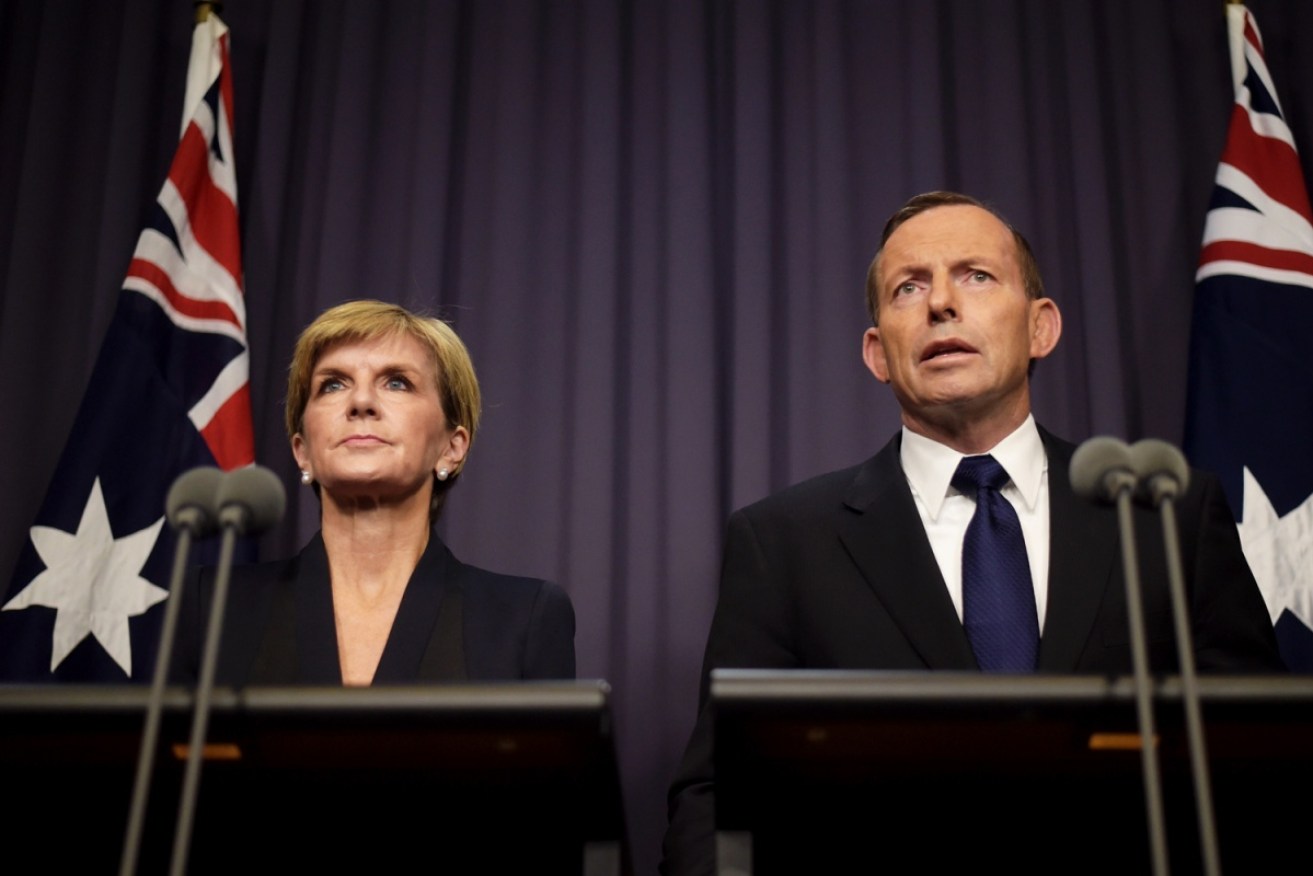Bali Nine diplomatic fallout begins


AAP
The fallout from the deaths of two Australians at the hands of the Indonesian government has begun, with Australia recalling its ambassador and senior politicians saying people have a right to feel angry.
Prime Minister Tony Abbott, speaking in the immediate aftermath of the shooting deaths of the Bali nine pair, said recalling Australia’s ambassador Paul Grigson was an “unprecedented” decision.
• The ‘inspirational’ lives of Chan and Sukumaran
• Indonesia executes Bali Nine pair Andrew Chan, Myuran Sukumaran
• Cruel, abhorrent’: anger, dismay at executions
“So I don’t want to minimise the gravity of what we’ve done,” he said, adding that ministerial contacts between the two nations will continue to be suspended.
But for a Prime Minister renowned for his combative nature, Mr Abbott refused to criticise the Indonesian President’s failure to consider clemency for the two reformed men.

Indonesian President Joko Widodo. Photo: AAP
While Mr Abbott described the deaths as “cruel and unnecessary”, he also said the “dark moment” would not prevent the restoration of the relationship between Australian and Indonesia.
Political reaction
Other politicians were more willing to speak frankly about the deaths.
“Their deaths at this time are senseless and unnecessary,” said Foreign Minister Julie Bishop.
In the hours before the shootings, Ms Bishop said she was “deeply disturbed at some of the aspects of how this has been handled”.
“I think the ghastly process that the family have been put through today just underscores how chaotic this has been,” she said.
She would not rule out cutting the $650 million aid program to Indonesia, indicating any decision would be left to the May 12 budget.
She played down criticism of the role the Australian Federal Police played in the arrest of the Bali Nine drug smugglers in 2005 which ultimately led to the execution of Chan and Sukumaran.
Education Minister Christpher Pyne said Australia would be “very surprised and shocked that the Indonesians have ended the lives of two men who had rehabilitated”.

A vigil for the Bali Nine in Canberra in March. Photo: AAP
“It’s a great sadness for our country that this has happened,” Mr Pyne said.
Labor, however, was more strident.
In a joint statement, Opposition leader Bill Shorten and Deputy Leader Tanya Plibersek said Australia had been “deeply hurt that our pleas for mercy were ignored”.
“It was completely unacceptable for Indonesia to proceed as it did when critical legal processes were yet to run their course, raising serious questions about Indonesia’s commitment to the rule of law,” their statement said.
Family tribute
Meanwhile, the families of the dead men released a brief, dignified statement through the Department of Foreign Affairs and Trade.
“In the ten years since they were arrested, they did all they could to make amends, helping many others,” the families wrote.
“They asked for mercy, but there was none. They were immensely grateful for all the support they received. We too, will be forever grateful.”
A grim convoy of ambulances arrived on a ferry in Cilacap, before heading to Jakarta. Empty coffins sent a few days ago returned carrying the bodies of the eight prisoners executed Wednesday morning.

Myuran Sukumaran’s siblings on Tuesday. Photo: AAP
Australian officials are with the Chan and Sukumaran families, and Ms Bishop said it would be their job to see the bodies returned with the respect and dignity they deserved.
‘Dignity’
Chan and Sukumaran’s lawyer Peter Morrissey said the Australians had died with dignity.
“It’s awful, I know, but the two boys died well. They made their preparations, they were dignified. They’re strong against the death penalty, they were supportive of their families,” he said.
“They tasted how awful this would be,” he said, referring to executions carried out in 2011.
“They knew what it was like to be tied to the post, they were very worried about it and yet at the end they’ve come through as really remarkable, lovely blokes.”
—with agencies







